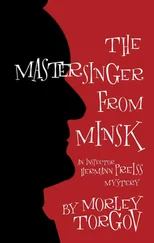Christopher Morley - Where the Blue Begins
Здесь есть возможность читать онлайн «Christopher Morley - Where the Blue Begins» весь текст электронной книги совершенно бесплатно (целиком полную версию без сокращений). В некоторых случаях можно слушать аудио, скачать через торрент в формате fb2 и присутствует краткое содержание. Жанр: Проза, на английском языке. Описание произведения, (предисловие) а так же отзывы посетителей доступны на портале библиотеки ЛибКат.
- Название:Where the Blue Begins
- Автор:
- Жанр:
- Год:неизвестен
- ISBN:нет данных
- Рейтинг книги:5 / 5. Голосов: 1
-
Избранное:Добавить в избранное
- Отзывы:
-
Ваша оценка:
- 100
- 1
- 2
- 3
- 4
- 5
Where the Blue Begins: краткое содержание, описание и аннотация
Предлагаем к чтению аннотацию, описание, краткое содержание или предисловие (зависит от того, что написал сам автор книги «Where the Blue Begins»). Если вы не нашли необходимую информацию о книге — напишите в комментариях, мы постараемся отыскать её.
Where the Blue Begins — читать онлайн бесплатно полную книгу (весь текст) целиком
Ниже представлен текст книги, разбитый по страницам. Система сохранения места последней прочитанной страницы, позволяет с удобством читать онлайн бесплатно книгу «Where the Blue Begins», без необходимости каждый раз заново искать на чём Вы остановились. Поставьте закладку, и сможете в любой момент перейти на страницу, на которой закончили чтение.
Интервал:
Закладка:
“Yes, after a fashion,” he replied. “Bishop, do you know that road down into the valley? The view is really superb — Yes, that road — Oh, no, I am a bachelor—”
It was too late. The chauffeur, unconscious of this private crisis, was spinning along the homeward way. With a tender emotion Gissing saw the spires of the poplar trees, the hemlocks down beyond the pond, the fringe of woods that concealed the house until you were quite upon it—
The car swerved suddenly and the driver only saved it by a quick and canny manoeuvre from going down the bank. He came to a stop, and almost from underneath the rear wheels appeared a scuffling dusty group of youngsters who had been playing in the road. There they were — Bunks, Groups, and Yelpers (inordinately grown!) and two of the Spaniels. Their clothes were deplorable, their faces grimed, their legs covered with burrs, their whole demeanour was ragamuffin and wild: yet Gissing felt a pang of pride to see his godchildren's keen, independent bearing contracted with the rowdier, disreputable look of the young Spaniels. Quickly he averted his head to escape recognition. But the urchins were all gaping at the Bishop's shovel hat.
“Hot dog!” cried Yelpers “Some hat!”
To his horror, Gissing now saw Mrs. Spaniel, hastening in alarm down from the house, spilling potatoes from her apron as she ran. He hurriedly urged the driver to proceed.
“What terrible looking children,” observed the Bishop, who seemed fascinated by their stare. “Really, my good sister,” he said to Mrs. Spaniel, who was now panting by the running board; “you must keep them off the road or someone will get hurt.”
Gissing was looking for an imaginary object on the floor of the car. To his great relief he heard the roar of the motor as they started again. But he sat up a little too soon. A simultaneous roar of “Daddy!” burst from the trio.
“What was that they were shouting at us?” inquired the Bishop, looking back.
Gissing shook his head. He was too overcome to speak.
CHAPTER ELEVEN
The little chapel at Dalmatian Heights sat upon a hill, among a grove of pines, the most romantic of all trees. Life, a powerful but clumsy dramatist, does not reject the most claptrap “situations,” which a sophisticated playwright would discard as too obvious. For this sandy plateau, strewn with satiny pine-needles, was the very horizon that had looked so blue and beckoning from the little house by the pond. Not far away was the great Airedale estate, which Gissing had known only at an admiring distance — and now he was living there as an honoured guest.
The Bishop had taken him to call upon the Airedales; and they, delighted that the chapel was to be re-opened, had insisted upon his staying with them. The chapel, in fact, was a special interest with Mr. Airedale, who had been a leading contributor toward its erection. Gissing was finding that life seemed to be continually putting him into false positions; and now he discovered, somewhat to his chagrin, that the lovely little shrine of St. Spitz, whose stained windows glowed like rubies in its cloister of dark trees, was rather a fashionable hobby among the wealthy landowners of Dalmatian Hills. It had been closed all summer, and they had missed it. The Bishop, in his airy and indefinite way, had not made it quite plain that Gissing was only a lay reader; and in spite of his embarrassed disclaimers, he found himself introduced by Mr. Airedale to the country-house clique as the new “vicar.”
But at any rate it was lucky that the Airedales had insisted on taking him in as a guest; for he had learned from the Bishop (just as the latter was leaving) that there was no stipend attached to the office of lay reader. Fortunately he still had much of the money he had saved from his salary as General Manager. And whatever sense of anomaly he felt was quickly assuaged by the extraordinary comfort and novelty of his environment. In the great Airedale mansion he experienced for the first time that ultimate triumph of civilization — a cup of tea served in bed before breakfast, with slices of bread-and-butter of tenuous and amazing fragile thinness. He was pleased, too, with the deference paid him as a representative of the cloth, even though it compelled him to a solemnity he did not inwardly feel. But most of all, undoubtedly, he was captivated by the loveliness and warmth of Miss Airedale.
The Bishop had not erred. Admiring the aristocratic Roman trend of her brow and nose; the proud, inquisitive carriage of her somewhat rectangular head, her admirable, vigorous figure and clear topaz eyes, Gissing was aware of something he had not experienced before — a disturbance both urgent and agreeable, in which the intellect seemed to play little part. He was startled by the strength of her attractiveness, amazed to learn how pleasing it was to be in her company. She was very young and brisk: wore clothes of a smart sporting cut, and was (he thought) quite divine in her riding breeches. But she was also completely devoted to the chapel, where she played the music on Sundays. She was a volatile creature, full of mischievous surprise: at their first music practice, after playing over some hymns on the pipe-organ, she burst into jazz, filling the quiet grove with the clamorous syncope of Paddy-Paws, a favourite song that summer.
So into the brilliant social life of the Airedales and their friends he found himself suddenly pitchforked. In spite of the oddity of the situation, and of occasional anxiety when he considered the possibility of Mr. Poodle finding him out, he was very happy. This was not quite what he had expected, but he was always adaptable. Miss Airedale was an enchanting companion. In the privacy of his bedroom he measured himself for a pair of riding breeches and wrote to his tailor in town to have them made as soon as possible. He served the little chapel assiduously, though he felt it better to conceal from the Airedales the fact that he went there every day. He suspected they would think him slightly mad if they knew, so he used to pretend that he had business in town. Then he would slip away to the balsam-scented hilltop and be perfectly happy sweeping the chapel floor, dusting the pews, polishing the brasswork, rearranging the hymnals in the racks. He arranged with the milkman to leave a bottle of milk and some cinnamon buns at the chapel gate every morning, so he had a cheerful and stealthy little lunch in the vestry-room, though always a trifle nervous lest some of his parishioners should discover him.
He practiced reading the lessons aloud at the brass lectern, and discovered how easy is dramatic elocution when you are alone. He wished it were possible to hold a service daily. For the first time he was able to sing hymns as loud as he liked. Miss Airedale played the organ with emphatic fervour, and the congregation, after a little hesitation, enjoyed the lusty sincerity of a hymn well trolled. Some of his flock, who had previously relished taking part in the general routine of the service, were disappointed by his zeal, for Gissing insisted on doing everything himself. He rang the bell, ushered the congregation to their seats, read the service, recited the Quadrupeds' Creed, led the choir, gave out as many announcements as he could devise, took up the collection, and at the close skipped out through the vestry and was ready and beaming in the porch before the nimblest worshipper had reached the door. On his first Sunday, indeed, he carried enthusiasm rather too far: in an innocent eagerness to prolong the service as much as possible, and being too excited to realize quite what he was doing, he went through the complete list of supplications for all possible occasions. The congregation were startled to find themselves praying simultaneously both for rain and for fair weather.
Читать дальшеИнтервал:
Закладка:
Похожие книги на «Where the Blue Begins»
Представляем Вашему вниманию похожие книги на «Where the Blue Begins» списком для выбора. Мы отобрали схожую по названию и смыслу литературу в надежде предоставить читателям больше вариантов отыскать новые, интересные, ещё непрочитанные произведения.
Обсуждение, отзывы о книге «Where the Blue Begins» и просто собственные мнения читателей. Оставьте ваши комментарии, напишите, что Вы думаете о произведении, его смысле или главных героях. Укажите что конкретно понравилось, а что нет, и почему Вы так считаете.










